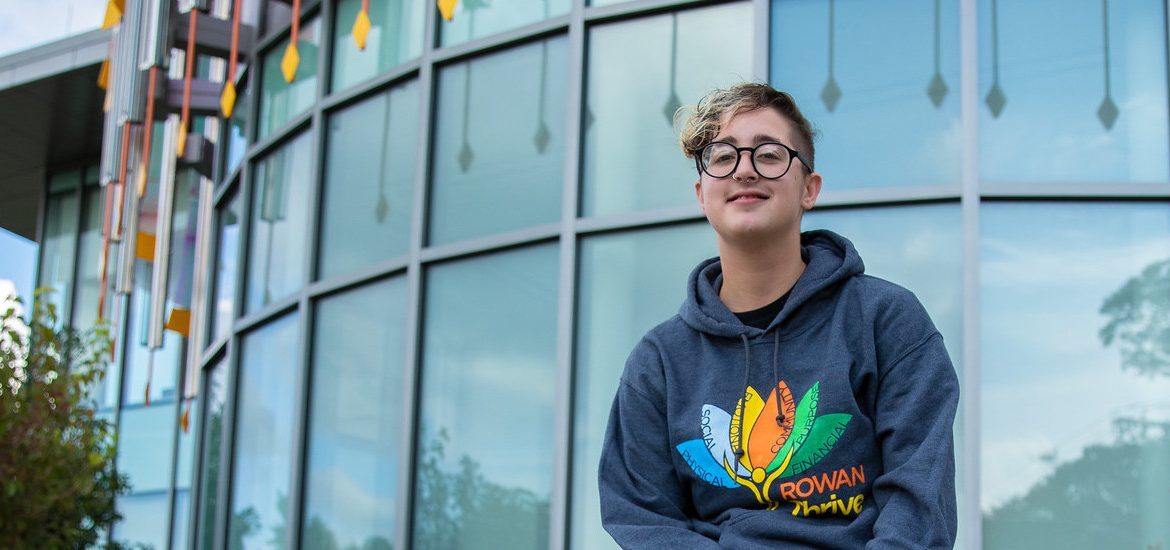Part of a series with Rowan University’s Wellness Center, this collaboration aims to educate students about personal well-being options. For further updates, follow @rowanuwellness on social. Written by Wellness Center intern Alexia J, psychology major What Causes Stress In College Students College life is fun and exciting but it can also be stressful for many students. […]
mental health
How I Parent My College Student: SGA Mom Shares

Today we hear from Lori B., a Rowan mom from Gloucester County, NJ. Lori’s daughter Paige will enter her senior year this fall as a supply chain and logistics major through the Rohrer College of Business, and holds the distinction of being a past president of Student Government Association (SGA). As an experienced Rowan parent, […]
Overcoming Overthinking: Ways Students Can Cope

Part of a series with Rowan University’s Wellness Center, this collaboration aims to educate students about personal well-being options. For further updates, follow @rowanuwellness on social. Do you ever find yourself in a quiet setting trying to get some work done but there is just a little voice in your head saying a million things at […]
How to Build Healthy Friendships As a College Student

Part of a series with Rowan University’s Wellness Center, this collaboration aims to educate students about personal well-being options. For further updates, follow @rowanuwellness on social. Written by Wellness Center intern Kye Binik, law & justice studies major Friendships in adulthood can be difficult to navigate especially when it comes to recognizing a healthy friendship versus […]
From High School to Showbiz and Back Again: Rowan Alum Janine Edmonds Tells All on Her Career as a Guidance Counselor

Today we feature Janine Edmonds, a graduate of Rowan University’s class of 2001 with a degree in Radio/Television/Film and a 2006 graduate of Rowan’s M.A. In Counseling Educational Settings program. Here, Edmonds tells us about her path returning to higher education and her experience as a guidance counselor for Oakcrest High School. Did You Always […]
Fadi Khan Talks About New Beginnings

Today we feature student leader Fadi Khan (he/him) of Pleasantville, NJ (Atlantic County). Fadi is a senior Biological Sciences major and lives on campus in Holly Pointe Commons, where he is also a Community Assistant. A first-generation college student, Fadi shares with us his perspectives on life, his major, and getting the most out of […]
The Power of Connecting with Others: Miral Rawy’s Story

Today we feature first-year student Miral Rawy, a Biomedical Engineering major who commutes to campus from Burlington County, NJ. Could you share a few on-campus activities, clubs, sports or events that you’ve attended so far? What was your favorite, and why? I have attended some RAHs [Rowan After Hours], which were a lot of fun, […]
Mental Health In Your First Year of College

Part of a series with Rowan University’s Wellness Center, this collaboration aims to educate students about personal well-being options. For further updates, follow @rowanuwellness on social. Written by Wellness Center intern Summer Slusarski, psychological sciences major The first year of college is both exciting and terrifying. You are moving away from home, gaining a sense of […]
Managing Stress as a College Student

This article is part of a running series with Rowan University’s Wellness Center. This collaboration aims to educate students about personal well-being options. For further updates, follow @RowanUWellness on Twitter, Instagram or Facebook. College is a tumultuous period of transition. Many students go from living at home with their parents to the newfound freedom of living alone. […]
How Nature Can Improve Your Mental Health

This article is part of a running series with Rowan University’s Wellness Center. This collaboration aims to educate students about personal well-being options. For further updates, follow @rowanuwellness on social. Written by Wellness Center intern Robert Zoroiwchak, psychology major In the bustling modern world, time is always short, and the never ending stress is always piling on. […]
Life with a Hint of Compassion

This article is part of a running series with Rowan University’s Wellness Center. This collaboration aims to educate students about personal well-being options. For further updates, follow @RowanUWellness on Twitter, Instagram or Facebook. Having compassion with oneself goes hand in hand with being compassionate with others quite often. According to self-compassion researcher Kristen Neff, “With […]

